Walnut Hill Cemetery is Belleville’s oldest. Here’s a who’s who of those buried there
- Oops!Something went wrong.Please try again later.
- Oops!Something went wrong.Please try again later.
- Oops!Something went wrong.Please try again later.
Uniquely Belleville stories explore the history, landmarks, culture and people that make southwestern Illinois a unique place to live.
On 50 acres off Mascoutah Avenue, almost as far south in Belleville as you can get, is the gently rolling green landscape of Walnut Hill Cemetery, the city’s oldest and most historic.
The first person buried there was Mary Coleman, who at 1 year and 19 days old succumbed to the effects of “teething,” according to the grave digger’s log, which is available on the St. Clair County Genealogical Society website. That was on April 16, 1855.
Since then, more than 35,000 people have been laid to rest at Walnut Hill, including those who lay beneath a common monument to men who died in the U.S. Civil War.
Also among them are many who have helped shape Belleville and who carried their influence in business, politics and sports well beyond the city’s boundaries.
Walnut Hill has been city-owned since its origin in 1850, when it was established for the burial of those who died during a cholera epidemic. You can visit the historic graves, its ornate above-ground crypts and its war veteran memorials any day of the week from dawn to dusk.
You also can search the location of individual graves using the St. Clair County Genealogical Society’s online database here.
Here’s an alphabetical list of some of the more famous names that are etched on a Walnut Hill tombstone:
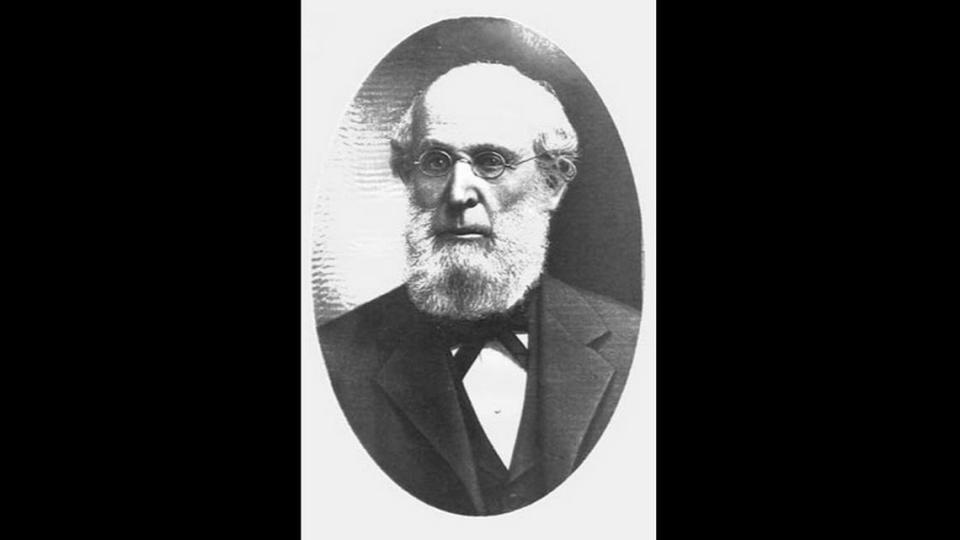
Edward Abend
He came from Bavaria as a child and grew into an influential lawyer, politician, businessman and namesake of a historic city street.
Edward Abend practiced law after completing his studies at Lebanon College, which later became McKendree University. But he turned to farming for six years before his election to the Illinois House of Representatives as a member of the Free Soil Party for a single term in 1948.
Abend went on to serve a term on the St. Clair County Board of Supervisors and five terms as Belleville’s mayor.
In 1860, he founded the Belleville Savings Bank, and was president of Belleville’s Electric Light Company and the St. Clair Turnpike Company. For 20 years, Abend served as director of the St. Louis, Alton and Terre Haute Railroad.
He died on July 17, 1904 at the age of 82.
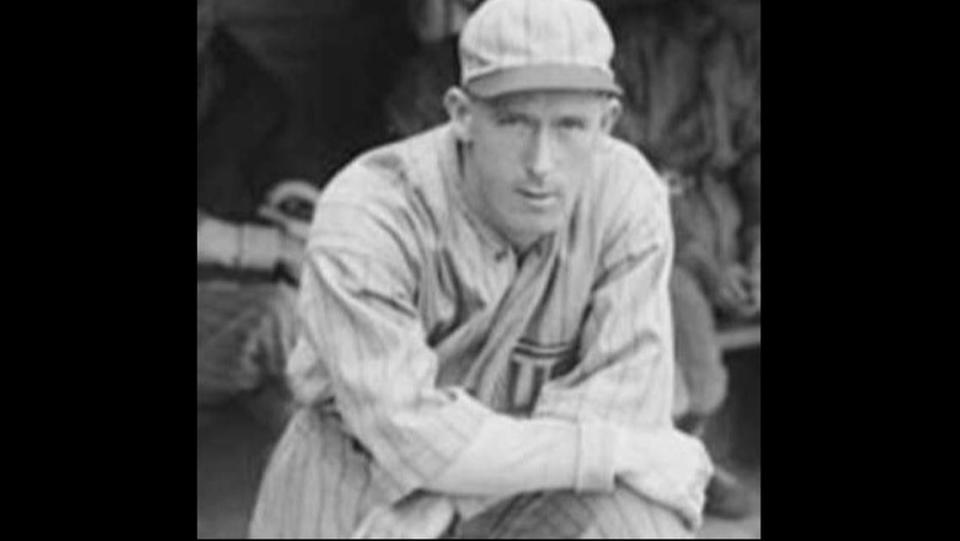
Max Flack
Born in Belleville in 1890, Max Flack was a speedy and rangy outfielder for 12 seasons in Major League Baseball. He carries one very unique claim to fame, however.
In 1922, he played the first game of a doubleheader in Chicago as a member of the Cubs and the second as the starting right fielder for the Cardinals. Flack and Cliff Heathcote, the other player in the trade deal, are thus the only two players in baseball history to play both games of a twin bill for each of the teams involved.
In his retirement, Flack was a popular custodian at East St. Louis Senior High School. He died on July 31, 1975 at the age of 85.
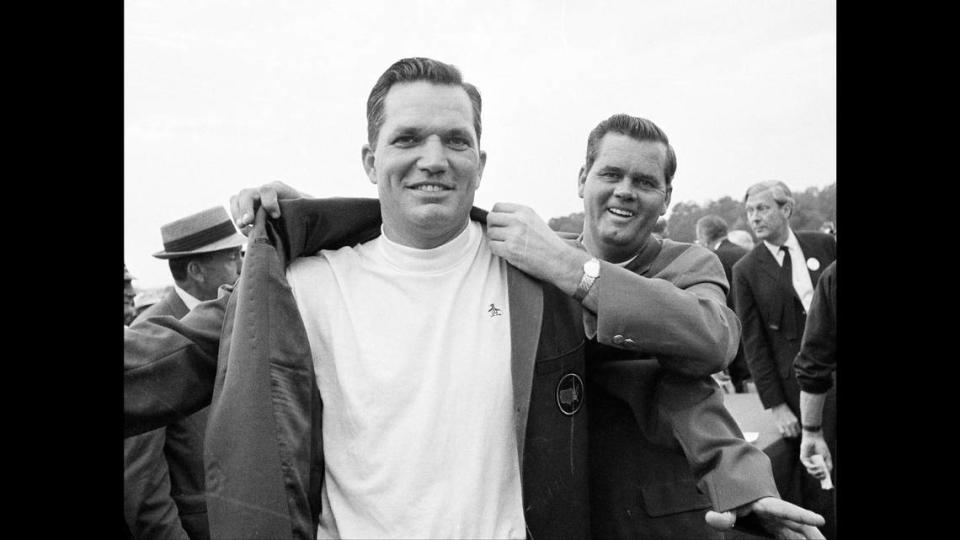
Bob Goalby
He was a multi-sport standout at Belleville Township High School who earned a scholarship to play football at the University of Illinois. But after serving in the U.S. Army during the Korean War, he embarked on a decades-long career on both the Professional Golfers Association and the PGA Champions Tour, which he was instrumental in developing.
Goalby won 14 titles as a pro, including the 1968 Master’s Tournament Championship.
He never stopped making Belleville his home throughout, lending his hand to the design of several local golf courses and raising money for many local causes. His efforts led the administration of BTHS District 201 to name the Fieldturf football field at Belleville West in his honor.
Goalby died on Jan. 19, 2022, at the age of 92.
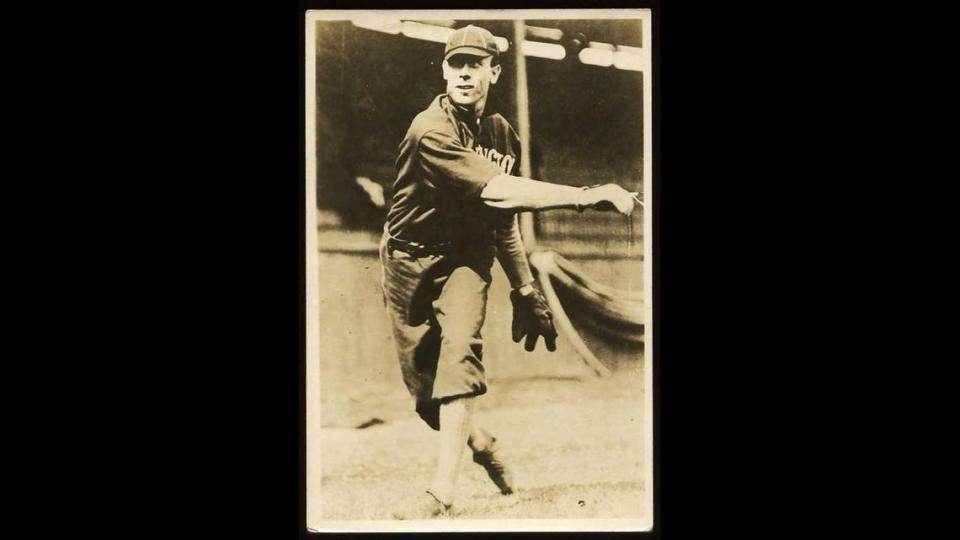
Bob Groom
Bob Groom is half of the only professional baseball tandem to throw no-hitters on back-to-back days. He and St. Louis Browns teammate Ernie Koob did it to eventual world champion Chicago White Sox on May 5 and 6 in 1917.
Koob threw the first on the Saturday and Groom completed the feat in the second game of a Sunday doubleheader after no-hitting the Sox for two innings to pick up the save in the first game.
Groom won 119 games in 10 big league seasons, then came home to Belleville and life as an upstanding local citizen. He sat on the board of directors at the St. Clair National Bank and ran the family coal mine. He was the first manager of the Belleville Hilgards, believed to be the longest continuously running American Legion baseball program in the country, winning state championships in 1938 and 1939.
Groom died on Feb. 19, 1948 at the age of 63.
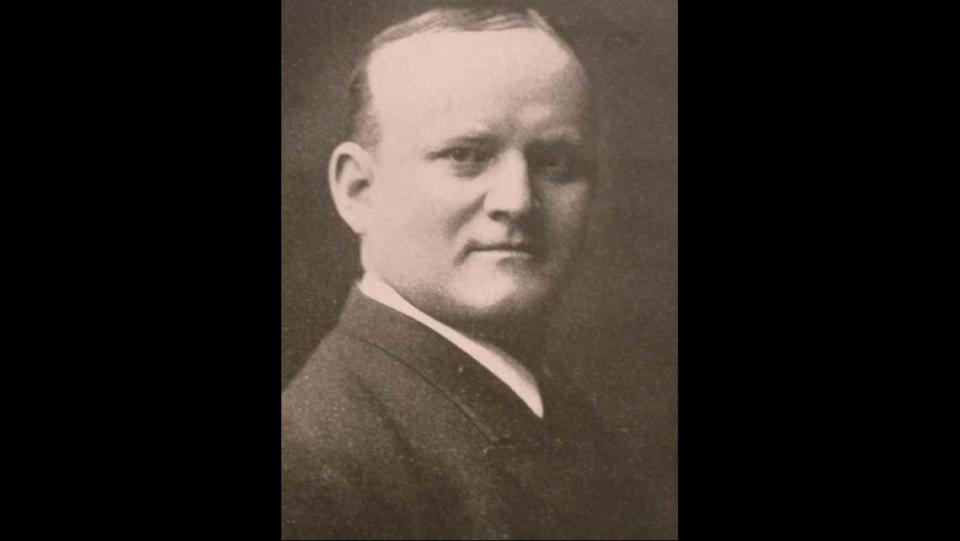
Frederick John Kern
The son of German immigrants, Kern was many things in his life, including a lumberman, educator, politician, businessman and journalist.
In 1901, Kern won a seat as a Democrat in the U.S. House of Representatives, which he served for a single term. He then returned home to Belleville, where he was elected to five terms as mayor. In 1913, he was appointed by Illinois Gov. Edward Dunne as president of the Illinois State Board of Administration, which he served through 1918 and was a delegate to the Democratic National Conventions of 1904, 1908, and 1912.
In 1913, he purchased the Belleville News-Democrat, which he served as publisher until his death on Nov. 9, 1931, at the age of 67. The BND remained under the Kern family’s ownership for 43 more years.
Fred Kern is the great-grandfather of former Belleville mayor and current St. Clair County Board Chairman Mark Kern.
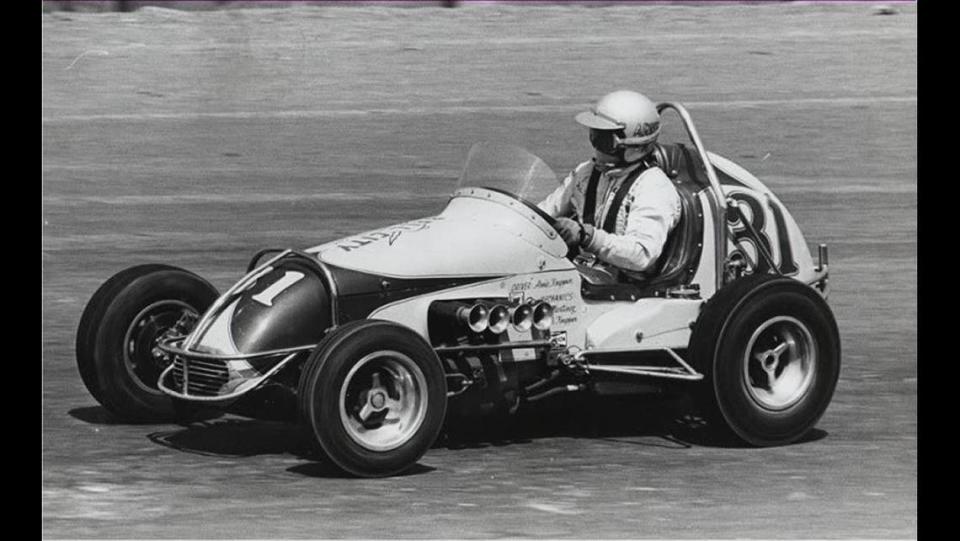
Arnold “Arnie” Knepper
The Belleville born and bred race car driver made 75 career starts in the United States Auto Club Championship Series, which at its time, was one of the premier circuits for open-wheel racing. Arnie Knepper made five consecutive starts at the Indianapolis 500 from 1965-1969, finishing as high as 18th place in 1967.
According to the St. Louis Sports Hall of Fame, Knepper is the hero of some Brickyard lore after he crashed on the 87th lap of the 1969 Indy 500.
“Instead of making the typical dash to track-side safety, (he) stood up on his car and, facing 180-mph oncoming traffic, frantically waved his arms to warn oncoming drivers of the danger,” the site says.
Knepper died in 1992 at the age of 61.
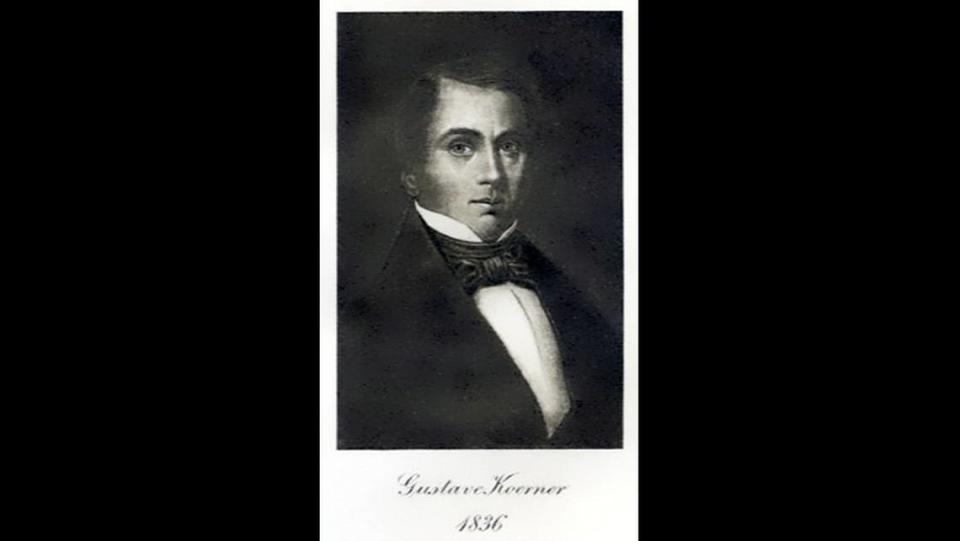
Gustav Koerner
“One of Belleville’s most illustrious citizens,” so says the St. Clair County Historical Society, Gustav Koerner was a founding member of the Republican Party and wrote the party platform for Abraham Lincoln’s run for the presidency in 1860.
“Koerner was an ardent anti-slavery proponent and, as a German emigre, played a key role in allying western America’s German population with the Union cause,” the historical society says.
He was elected to a single term in the U.S. House of Representatives in 1842, sat on the Illinois Supreme Court from 1843 to 1848, and, from 1853 to 1857, served as the 12th lieutenant governor of Illinois. By Lincoln’s appointment, Koerner was the U.S. ambassador to Spain from 1862-1864.
When Lincoln was assassinated in 1865, Koerner served as pallbearer at the state funeral.
The Greek Revival house he built for his wife, Sophie, still stands and is being restored on Abend Street, near the corner of Mascoutah Avenue.
Koerner died on April 9, 1896 at the age of 86.
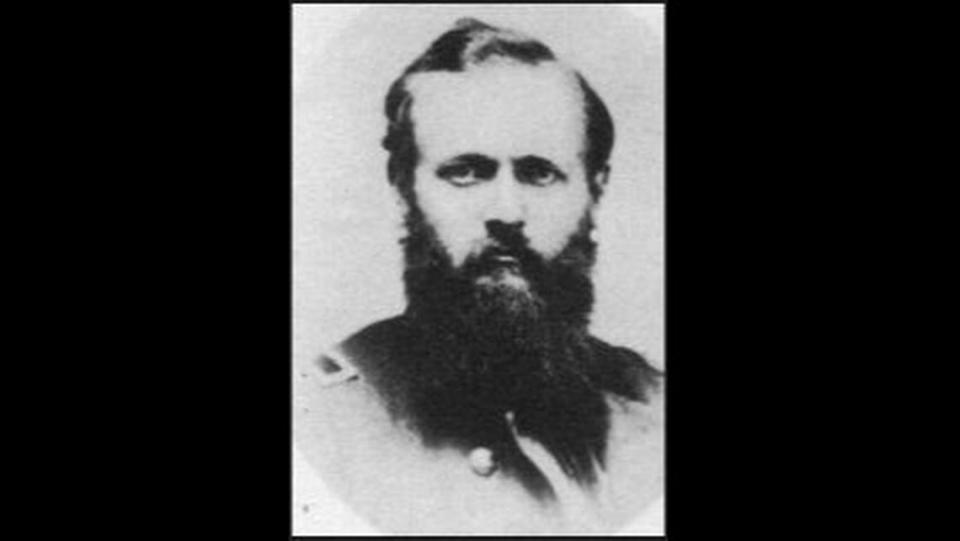
William Charles Kueffner
In his day, William Kueffner was one of southern Illinois most successful and respected lawyers, but not before he served a long and distinguished career in the military.
He was born in Germany and immigrated to Texas. But, as an ardent opponent of slavery, he moved north to Belleville just in time for the outbreak of the Civil War. He was commissioned as a captain in 9th Illinois Infantry, suffering four wounds after seeing action in 10 battles.
Kueffner recovered in time to return late in the war with the rank of colonel and commander of the 149th Volunteer Infantry. He was brevetted as brigadier general, backdated to March 13, 1865, for “gallant and meritorious services.”
Kueffer died on March 18, 1893 at the age of 53. A memorial including a statue of his likeness stands at Walnut Hill.
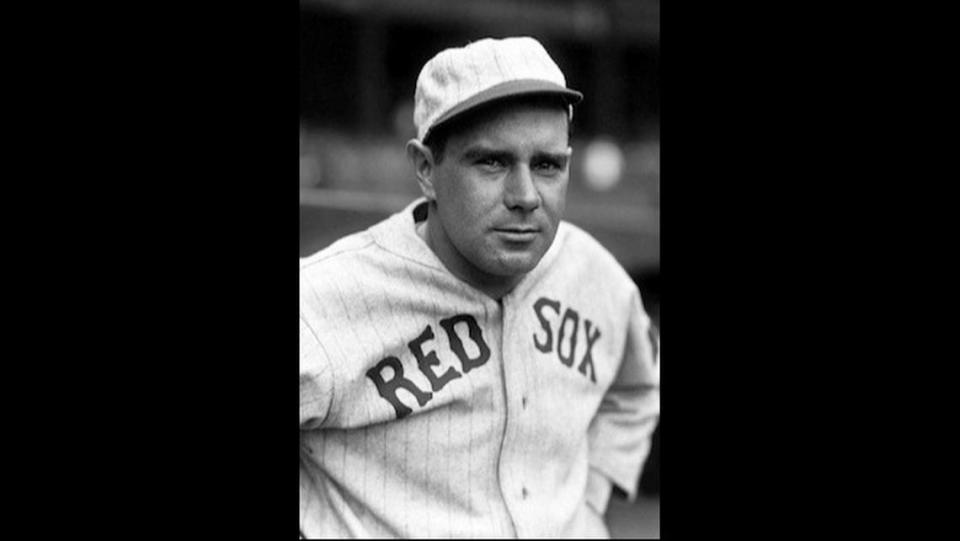
Otto Louis “Otis” Miller
Most of the well-known Bellevilians laid to rest at Walnut Hill made their mark either in politics or sports. Otis Miller did it in both.
Miller was one of six children born to German immigrants who owned and operated a tavern in Belleville. He kicked around the minor leagues for five years before signing with the St. Louis Browns as a second baseman in 1927 at the age of 26. He played 51 games for his hometown team before being traded on Christmas Eve to the Boston Red Sox.
Miller gave Boston two solid years, batting .286 in 112 games in 1930 and played excellent defense, but was released to the minor league Buffalo Bison after the 1932 season.
He came back to Belleville to work as a steamfitter before being elected to the Illinois legislature as a Republican in 1949. He continued to serve in the state House of Representatives until his death on July 26, 1959, at age 58.
His son Otis L. Miller, Jr. also served in the Illinois House of Representatives in 1961 and 1962 and was elected mayor of Belleville.
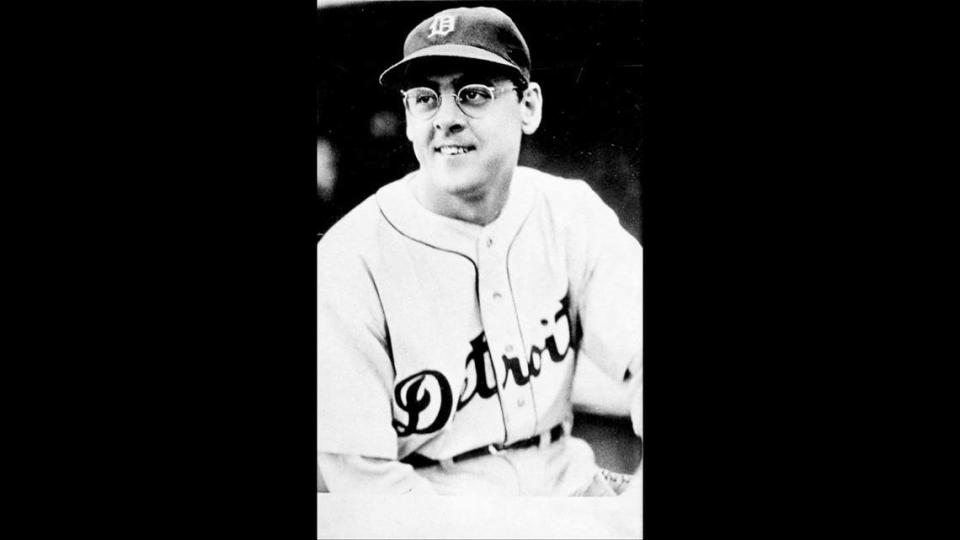
Les Mueller
Sandwiched around two years in the military during World War II, Les Mueller pitched in 30 games across parts of two seasons for the Detroit Tigers. His career record was 6 wins with 8 losses in 147 innings. He even earned a ring as a member of Detroit’s World Series championship team in 1945.
But his so-called “Long Game” goes down in baseball lore as one of the most heroic and unlucky efforts in history.
The Tigers had just lost to the Washington Senators in an 18-inning game on July 20, 1945, leaving it to Mueller to some heavy lifting to preserve the Tigers’ pitching staff the following day at Shibe Park in Philadelphia.
Mueller delivered, lasting 19 ⅔ innings on the mound. He allowed Connie Mack’s Athletics just one run on 13 hits, while striking out 6 and stranding 18 Philadelphia base runners. He faced the minimum number of batters from the 10th through 18th innings and held Hall of Famer George Kell hitless in eight at bats.
The game eventually ended in a 1-1 tie after 24 innings innings because American League rules did not allow for a new inning to start after 8 p.m., even though Shibe Park had lights.
In his next start, Mueller held the White Sox scoreless through eight innings, but lost the game 3-2 on an error in the ninth. So between the two starts, Mueller allowed just two earned runs in 27 2/3 innings and had only a 0-1 record to show for it.
Unsurprisingly, Mueller’s career was shortened by an achy arm and he returned to Belleville where he ran the family furniture store that remains in operation today.
Mueller died on Oct. 25, 2012 at the age of 93.
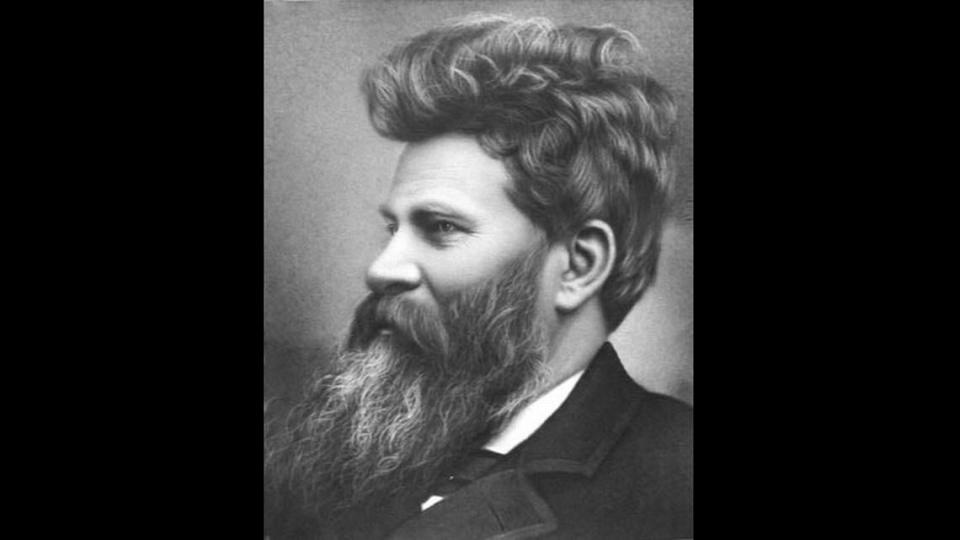
Henry Raab
Henry Raab was a prominent educator, both locally and across Illinois. He once famously said, “No instruction is of any avail when it leaves the child indifferent.”
Born in Westzler, Germany, in 1827, Raab moved to Belleville in 1854 and later served as the first full-time superintendent of the Belleville School District. From 1882 to 1886 he served as the school superintendent for all of Illinois.
In 1899, he would organize the Belleville Turners social group, which, by 1925, had the second largest membership in the American Turners’ federation.
In 1906, and with the help of his son, Dr. Ernest F. Raab (also interred at Walnut Hill), the school board in Belleville dedicated a new school named after the town’s much-respected educator. The building on 11th Street was destroyed by fire in 1960, but was rebuilt and is still educating a new generation of Belleville students to this day.
He died on March 13, 1901 at the age of 63.
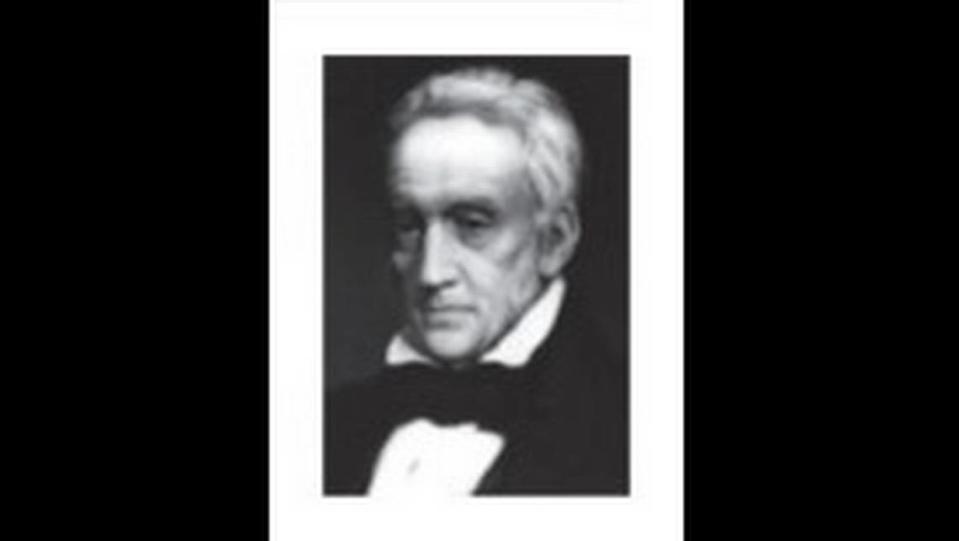
John Reynolds
He was born in Montgomery County, Pennsylvania, spent most of his childhood in Kaskaskia, Illinois, and began practicing law in Cahokia when it was the county seat of St. Clair. But after serving a tour of duty as a major general during the BlackHawk War, John Reynolds turned to career in politics.
He is one of the few to serve all branches of Illinois government, including as the first justice sworn to the state’s supreme court. After a failed campaign for Congress, he twice won elections to serve in the Illinois House of Representatives.
Then, in December of 1830, the moderate Reynolds was elected Illinois’ fourth governor, a post he later resigned upon his election to the U.S. House of Representatives. He served five non-consecutive terms in Congress.
In the interim, he tried his hand at business, opening a coal mine and building the first railroad in the Mississippi Valley. It was six miles long and, because he and his partners couldn’t afford a locomotive, the train was pulled by horses.
Despite making his home in Belleville, near Gustav Koerner, Reynolds backed Stephen Douglas for president in 1860, and correspondence before and during the Civil War “showed a sympathy for secession,” according to a biography published in 1887.
Reynolds died on May 8, 1865 at the age of 77.
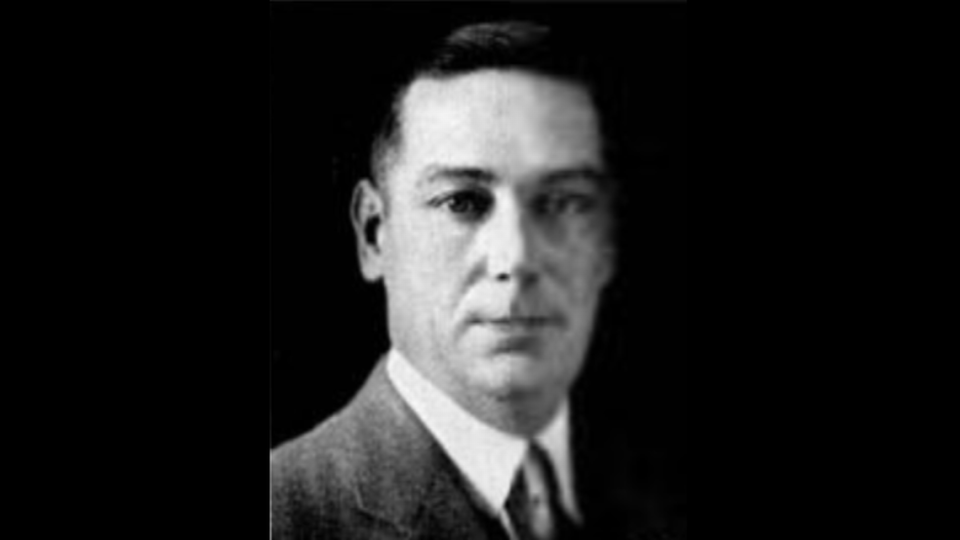
Edwin Martin Schaefer
Schaefer was born in Belleville, attended the University of Illinois and Washington University in St. Louis, and served as a Democratic member of the U.S. House of Representatives from 1931 to 1943.
He left Congress to serve on the board of directors of Griesediech-Western Brewery Co. in Belleville.
He held his seat until his death on Nov. 8, 1950, at the age of 63.
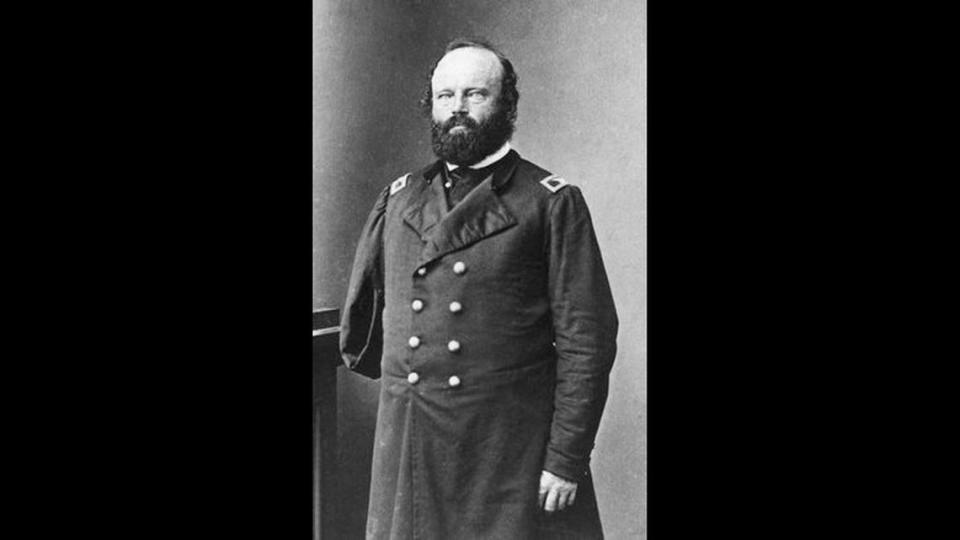
Hugo Aurelius Wangelin
He was a member of a prominent family in Prussia (now Poland) and son of a German military officer, but came to the United States with his mother in 1834, eventually settling in Belleville.
In August 1861, after the Civil War broke out, he sold his farm and joined the Union Army as a volunteer in the 12th Missouri Infantry Regiment as a major. He earned the rank of colonel and commander after numerous battles, including those at Vicksburg, Pea Ridge and Lookout Mountain.
At the Battle of Ringgold Gap, Georgia, he lost his right arm, but resumed his command in March 1864, participating in the Battle of Atlanta. A year later, he was promoted to brigadier general.
Wangelin returned to Belleville to serve as postmaster, a position he held for eight years before serving on the city council.
He died on Feb. 26, 1883 at the age of 64.
Do you have an idea for a story that features the history, culture or people that make southwestern Illinois a unique place to live? Please share it with us at newsroom@bnd.com.

